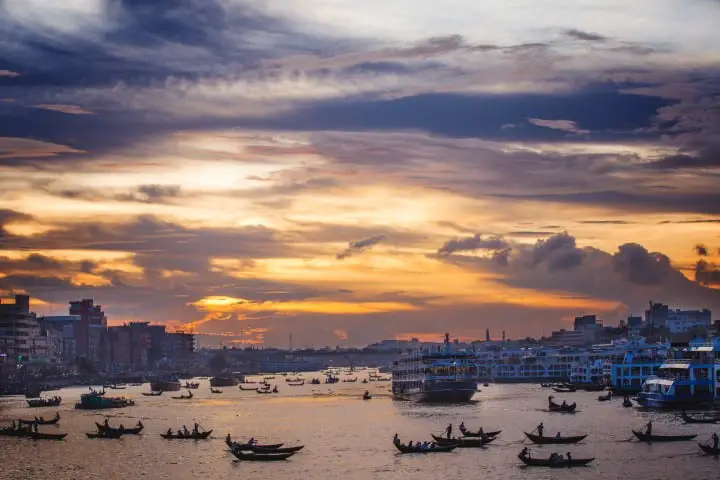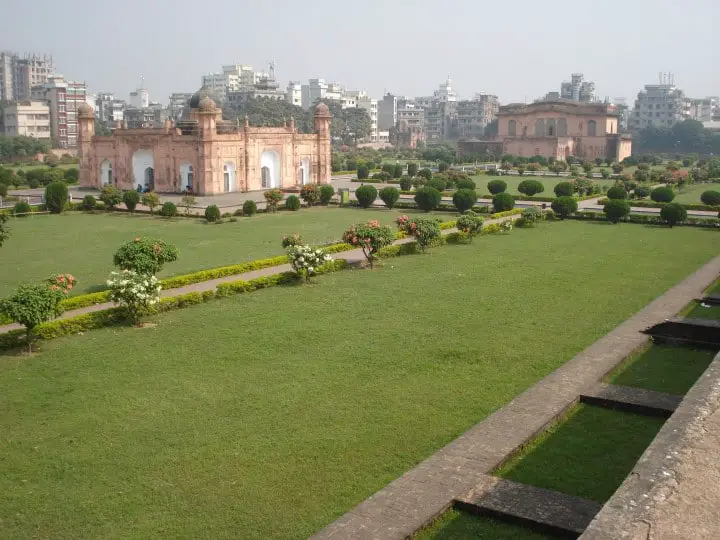Bangladesh, a country situated in South Asia, has come a long way since gaining independence from Pakistan in 1971. Over the years, the country has faced numerous challenges that have hindered its growth and development.
However, despite these obstacles, Bangladesh has shown great progress and potential in various fields, such as agriculture, IT, and textiles. As Bangladesh continues to improve, it raises the question: can Bangladesh become a superpower in the English language? In this blog post, we will explore the various factors that could contribute to Bangladesh’s rise as a global superpower in the English language.

I. Challenges facing Bangladesh
Bangladesh indeed has the potential to become a superpower, but it is not without its challenges. One of the biggest hurdles is the high prevalence of corruption in every sector of the country, which is detrimental to development.
Moreover, while the youth population in Bangladesh has the potential to contribute to its growth, a significant portion is inactive and not involved in any economic activity. Though there is still much to do, bringing the youth into the fold would enhance productivity and help lower external costs.
Efforts to address these challenges should be prioritized to realize the country’s true potential. [1][2]
Economic challenges, including poverty and inequality
Bangladesh faces significant economic challenges in its quest to become a superpower. Despite its remarkable achievements in poverty reduction, the country still grapples with high levels of inequality. Poverty remains a pervasive problem, with more than 20 million people living below the poverty line.
There is also a huge gap between the rich and poor, with the top 1% holding more than double the wealth of the bottom 50%.
These challenges threaten to stall progress and undermine the country’s efforts to reach its full potential. [3][4]
Political instability and corruption
Political instability and corruption are two major challenges facing Bangladesh in its quest to become an economic powerhouse. The country has a history of political turmoil, which has had a negative impact on investments and governance.
Corruption is also deeply rooted in the government and private sectors, hindering progress and development. Addressing these issues is crucial for Bangladesh to unlock its full potential and become a leading player in the global economy.
The government must take concrete actions to stabilize the political environment and tackle corruption effectively. [5][6]
Environmental challenges, such as climate change and natural disasters
Bangladesh is facing a multitude of environmental challenges, with climate change and natural disasters being the two foremost issues.
The country is one of the most vulnerable to climate change, with rising sea levels threatening to displace millions of people and inundate the world-famous Sundarbans mangrove forest.

In addition, natural disasters such as floods and cyclones have devastating effects on a regular basis, destroying villages and livelihoods. Addressing these environmental challenges is essential to securing Bangladesh’s path towards becoming a superpower. [7][8]
Infrastructure deficits, including transportation and electricity
Infrastructure deficits remain a huge challenge for Bangladesh’s development. The transportation system is inadequate and in dire need of modernization and expansion. On the other hand, the generation of electricity is still insufficient to meet the growing demand of the country.
Although significant progress has been made over the past decade, access to electricity for all remains a distant goal.
Urgent action is required to improve the infrastructure, especially in transportation and electricity, to support Bangladesh’s growth and development. [9][10]
II. Bangladesh\’s strengths
Bangladesh is a country with great potential for growth and development. It has already made significant progress in empowering women and improving children’s health and education.
The country has a large garment manufacturing industry that has created many jobs and contributed to its economic success. Furthermore, Bangladesh has a young and working-age population, which is expected to drive its rapid progress.
With proper implementation of structural reforms, there is no reason why Bangladesh cannot become a superpower in its own right. [11][12]
Demographic advantage with a large and growing population
Bangladesh has a demographic advantage with a large and growing population of over 160 million people. The country has a youthful and working-age population, with about 40% of the population comprised of the youth, which presents a tremendous opportunity for rapid progress.
The country’s potential to become an economic powerhouse is largely due to its demographic advantage, which is a valuable resource that needs to be brought into the mainstream economy through structural reforms and youth inclusion strategies. [13][14]
Emerging manufacturing and tech industries
Bangladesh’s emerging manufacturing and tech industries are showing immense potential for growth. The country’s readymade garments (RMG) sector has already created four million jobs and driven economic growth.
However, to compete on higher productivity, firms will need to adopt better technologies and business practices. Improved connectivity to international markets, strong financial institutions, and regulatory frameworks will also enable firms to diversify their exports and access cost-effective advisory services.
With its youthful and working-age population, Bangladesh has the potential to make significant progress in the coming years. [15][16]
Geographical location with access to major markets
Bangladesh’s geographical location is an advantage for its economic growth. It has easy access to major markets, such as India and China, as well as proximity to Southeast Asian countries.
Bangladesh’s strategic location also allows for easy transport of goods through its ports, which are among the busiest in the world.
With its growing economy and increasing trade opportunities, Bangladesh is poised to become a major player in the global market. [17][18]
Successful development in areas such as microfinance and garment production
Bangladesh has made significant strides in areas such as microfinance and garment production. It has become a global leader in the garment industry, with many major brands sourcing their products from the country.

Additionally, the microfinance industry has played a vital role in empowering women and improving the living standards of many low-income households. These successes have helped to bolster Bangladesh’s economy, and with continued investment and development, the country has the potential to become a major economic powerhouse. [19]
III. Strategies for overcoming challenges and capitalizing on strengths
To overcome challenges and capitalize on strengths, Bangladesh has to implement structural reforms to improve its macroeconomic stability, infrastructure, and institutions.
Corruption is a major hurdle in the path of growth, and needs to be curbed through proper implementation of rules and regulations. The country also has to focus on bringing its youth into the mainstream economy to increase productivity and lower external costs.
With its young and working-age population, Bangladesh has the potential to make rapid progress, but it needs to address these issues urgently to realize its full economic potential. [21][22]
Addressing economic challenges through education and investment in infrastructure
Addressing economic challenges through education and investment in infrastructure is crucial for Bangladesh to become a superpower.
The government must prioritize improving the education system and investing in infrastructure projects such as roads, bridges, and ports to attract foreign investment and boost economic growth.
Additionally, initiatives aimed at improving industrialization and increasing trade with other countries must be implemented. By addressing economic challenges through strategic investments, Bangladesh can capitalize on its strengths and move closer to achieving its superpower aspirations. [23][24]
Strengthening political stability through improved governance and anti-corruption measures
Improved governance and anti-corruption measures are crucial for strengthening political stability in Bangladesh.
The country faces numerous governance challenges, including weak public financial management and inadequate electoral laws. However, the current Caretaker Government has taken steps to rebuild core public institutions and strengthen the Anticorruption Commission.
A multi-faceted approach is required to address all the governance weaknesses effectively. This would require reforming formal institutions, laws, and processes, while also developing robust mechanisms for accountability through civil society and the media. [25][26]
Addressing environmental challenges through sustainable development practices
Addressing environmental challenges through sustainable development practices is crucial for Bangladesh’s journey towards becoming a superpower. The country faces challenges such as deforestation, plastic pollution, and climate change.
To overcome these challenges, Bangladesh can adopt sustainable agriculture and forestry practices, promote renewable energy sources, and implement policies to reduce plastic usage.
Through sustainable development practices, Bangladesh can not only address environmental challenges but also capitalize on its strengths, such as its vast renewable energy potential and its success in reducing poverty. [27][28]
Fostering innovation in emerging industries and leveraging geographic advantages
To foster innovation in emerging industries, Bangladesh can prioritize investment in research and development, improve intellectual property protection, and provide incentives for startups.

The country can also leverage its geographic advantages, such as its coastal location, to develop its shipping and fishing industries and attract foreign investment. By creating a supportive environment for new industries and capitalizing on its strengths, Bangladesh can position itself as a competitive player in the global economy. [29][30]
IV. Comparisons to other rising superpowers
Other countries have overcome similar challenges to achieve superpower status. China, for example, faced significant economic and political challenges but has become a global economic powerhouse in recent decades. India, too, has made significant strides in reducing poverty and improving healthcare, and is now a major player in the technology industry.
Like China and India, Bangladesh faces significant environmental challenges, but unlike India, Bangladesh has a smaller land area and population density, which could enable it to adopt more sustainable development practices more quickly. Bangladesh’s demographic advantage and emerging industries could also give it a competitive edge over India.
Another comparison could be made with South Korea, which experienced significant economic and political challenges in the mid-20th century but has since become a major player in the global economy. Like South Korea, Bangladesh has a strong manufacturing industry and could leverage its growing tech industry to achieve economic success.
